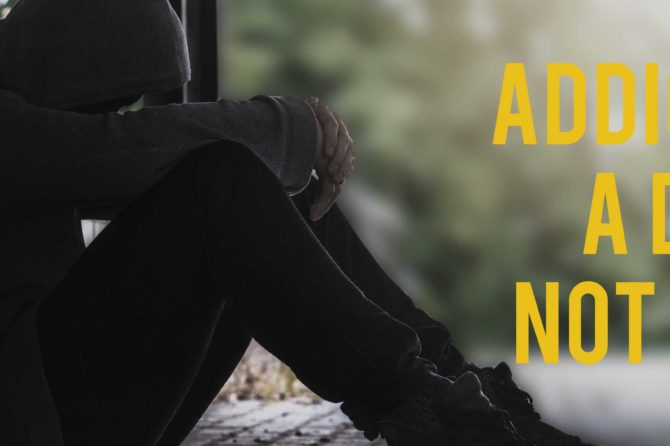
Addiction is a Disease, Not a Crime
Imagine the following scenario: you are experiencing chronic health problems, so you visit your doctor and submit to a battery of routine lab tests. The results come back and indicate that you have diabetes. You do your best to maintain a healthy routine to combat the condition, but one day you “cheat” and enjoy a slice of cheesecake.
Suddenly, you hear a knock on the door. It’s the police. Moments later, you are arrested.
This may seem like a fantastical chain of events, but it’s akin to the treatment that victims of addiction suffer every day in America. The debate over how we sentence drug offenders re-ignites often in the news, but what’s the human story behind the controversy? And how many lives are ensnared in the decades-old War on Drugs?
BY THE NUMBERS
On average, the Drug Enforcement Administration (DEA) arrests 30,000 people annually in this country. Addiction is a disease, just like diabetes, but one affliction is punished by law while the other is treated more reverently and compassionately by our society.
Why is there such a disparity? Does the public not regard substance abuse as a predisposed medical condition? Let’s break down the facts…
THE SCIENCE OF SUBSTANCE USE
Physical existence is a fascinating mix of pleasure and pain. These sensations are dictated by external stimuli to some degree, but they are also orchestrated within our nervous system by the functionality of our brains. When we feel euphoria, that’s the pleasure center of our mind flooding with a chemical called dopamine. This phenomenon can be triggered by a great meal, a great kiss, or a great day at the office.
But our brains can also produce dopamine as a byproduct of substance use. The “high” associated with the ingestion of various narcotics is actually our own biology working overtime, as manipulated by the substance in question.
While this explains the simple science of drug experimentation, the question of addiction is another issue altogether.
WHO SUCCUMBS TO ADDICTION?
The likelihood that an individual will become a habitual user is determined by a number of important variables:
- Genetics – Over half of the predictors associated with addiction can be attributed to your genes. This not only entails what you inherited from mom and dad but also conditions such as mental illness, which are heavily influenced by genetics.
- Environment – The other half of the nature vs. nurture equation is your surrounding environment. If you are raised in an inner city where drugs are prevalent (in fact, they may be the only viable means of income for some individuals), then substances are much more accessible to you than to someone born into a more sheltered suburban existence.
- Life Events – The intersection of genetics and environment is your upbringing, and that involves various twists of fate that are beyond anyone’s control (even the most attentive of guardians). For example, if you survive a serious accident and are prescribed pain medication, this could start you down the road of addiction. The bad luck of various circumstances must be taken into consideration when we discuss the realities of substance use.
THE PERSISTENCE OF ADDICTION
While heredity can account for the initial decision to experiment with drugs and/or alcohol, physiology takes over when substance use becomes a prolonged issue. Addiction actually alters the chemistry of the human brain in profound ways. Our systems develop a tolerance to the substance of choice, driving its user to crave more and more just to reach the same levels of euphoria attained during the previous binge.
Meanwhile, our brain chemistry shifts as a result of this extended pattern of abuse. It affects our cognition, making it more difficult to process information. We may also become less capable of handling everyday stress. Our sleep patterns are negatively affected by prolonged substance use, and our judgment is impaired as the condition persists.
All of these effects of continued abuse tend to further alienate an individual. This perpetuates the addiction, triggering more cravings and spiraling the situation downward even further. It’s a vicious cycle and one that often leads to repeated arrests when various drug infractions are perpetrated.
THE DEBATE RAGES ON
It would be negligent to turn a blind eye to the societal abuses that some criminals commit while under the influence of drugs and/or alcohol. For example, if a drunk driver kills a pedestrian, he must be held accountable for his actions. We must punish illegal behavior while being careful not to outlaw the very nature of the addiction that brought about such a tragic turn of events.
Drug sentences and legal logistics are always in flux, but there’s a human factor beneath all of these codes and conundrums. It’s a question not only of crime and punishment but also of compassion and forgiveness.
Leave a reply